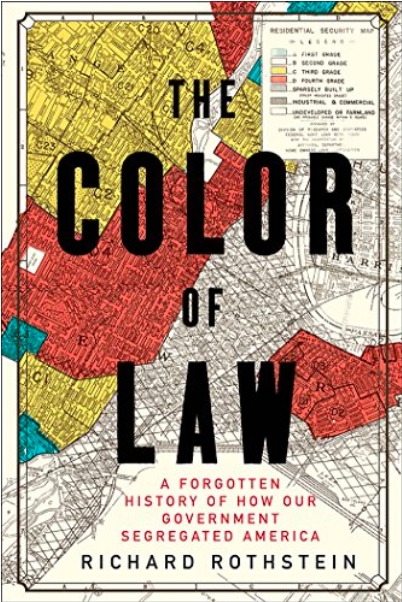The Color of Law opens reader’s eyes to history of segregation
March 13, 2023
“Today’s residential segregation in the North, South, Midwest, and West is not the unintended consequence of individual choices and of otherwise well-meaning law or regulation but of unhidden public policy that explicitly segregated every metropolitan area in the United States,” writes Richard Rothstein.
The Color Of Law: A Forgotten History of How Our Government Segregated America is a historical nonfiction by author Richard Rothstein. It informs readers about residential segregation, an important topic encompassing our lives today.
Shortly following its publication in 2017, The Color of Law drew nationwide attention, making the longlist for the 2017 National Book awards, placing fourth on Publishers Weekly’s Top 10 Best Books of 2017 and winning Rothstein the 2018 Hillman Prize for Book of Journalism.
In the book, Rothstein argues that segregation in America is a product of explicit government-based laws and policies. He revisits this important theme, de jure segregation, throughout the book.
Understanding America’s racist history is vital, despite the present day growth in racial equality because remnants of de jure segregation remain prevalent today. Many white Americans still believe segregation was accidental or is a product of de facto segregation, a term that refers to segregation based on habit. Rothstein opens the reader’s eyes to the history of segregation by providing examples of racist legislation that has been established by the U.S. government.
The book consists of twelve chapters, and each one details a different aspect of de jure segregation. The shocking statistics made the book incredibly gripping, and the flow between chapters created intense immersion as though the reader is personally discovering and unpacking the injustices of America.
We are in the midst of an opportunity to let the de jure segregation of America exist not as a “forgotten history”, but as a motive to continue the fight for equality.
That being said, Rothstein is a white man, so although the book is outstanding and has a strong, central message about America’s residential segregation, the book fails to uplift black authors. Those who would like to support black authors may want to consider choosing a different read.
There wasn’t any widespread controversy surrounding the fact that Rothstein is white. It is important to note that the author is a senior fellow of the NAACP and researched this topic specifically, for many years. The book generally aims to provide a legal and upfront perspective on the topic of de jure segregation, combined with interviews of African Americans who went through hardships related to it in order to add more personal insights.
Obviously, Rothstein wasn’t the one being oppressed. It seems, however, that he does collaborate with people who were in order to write the book.
For those who are interested in expanding their “TBR” list with some books by black authors, here is a list: 25 Books by Black Authors
“Undoing the effects of de jure segregation will be incomparably difficult,” said Rothstein. “To make a start, we will first have to contemplate what we have collectively done and, on behalf of our government, accept responsibility.”



















































